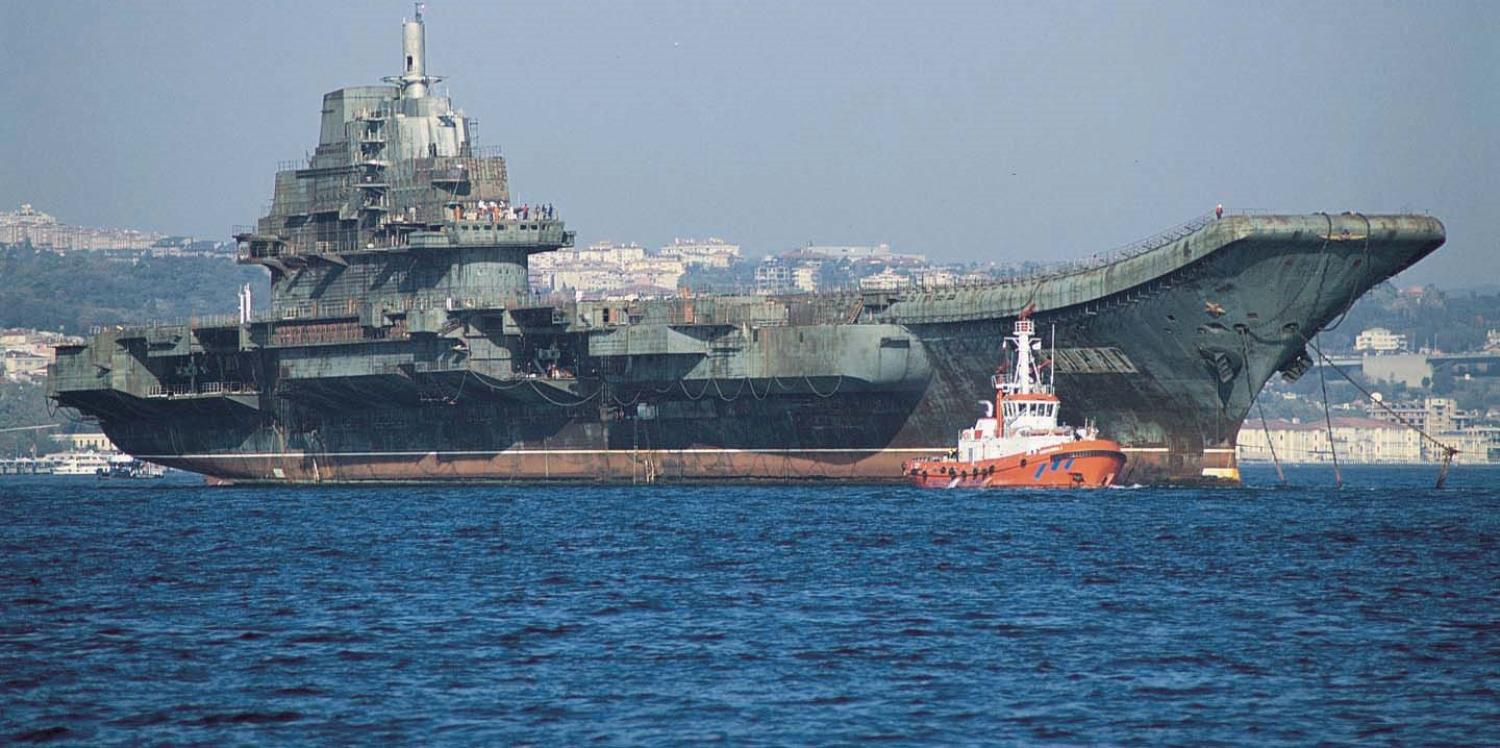The South China Morning Post has published a terrific series on the remarkable story of a near-derelict unfinished Soviet aircraft carrier which was rebuilt by China to become its first carrier, the Liaoning.
Most incredible is the revelation that the ship, which is now the centrepiece of the Chinese fleet, was originally purchased by Chinese businessman Xu Zengping at the private urging of PLA Navy officers but with no official backing from the Government:
Xu said that when naval officials approached him (in the mid-1990s) to buy the carrier on China's behalf, they also warned him of two major impediments: the navy was severely underfunded and there was no support in Beijing for the carrier project. If Xu took on the job, he would be taking a gamble on government policy.
"I was chosen to do the deal. I realised it was a mission impossible because buying something like a carrier should be a national commitment, not one by a company or an individual," Xu said. "But my passion pushed me to take on the mission because it was a now-or-never chance for China to buy a new carrier from a nearly insolvent state-owned Ukrainian shipbuilder."
So in sum, a group of freelancing military officers effectively made policy without approval from the central government, and the nationalism and entrepreneurship of a Chinese businessman eventually pushed Beijing into a more militarily assertive posture. Students of Chinese governance may recognise some of these themes.
The policy implications of this anecdote are alarming, but as a yarn, the South China Morning Post's story just gets better:
The deal-making was not for the faint-hearted. Apart from the stacks of US dollars he handed over to the shipyard's management, Xu plied the Ukrainian sellers with fiery, 62-per-cent-proof Chinese liquor called erguotou.
"I felt that I was soaking in liquor back then when I was negotiating with the management of the carrier builder," Xu said. "At every meal I needed to drink two to three litres of erguotou. In the critical four days, I brought them more than 50 bottles. But I still felt I had the energy to do it and was always able to keep a sober mind because my drinking was goal-directed; the Ukrainians were drinking to get drunk."
It all paid off. After several alcohol-drenched days, the shipbuilder and government agreed to sell Xu the carrier - and the ship's all-important blueprints - for the bargain-basement price of US$20 million. They shook hands and arrangements were made to transfer the money.
But what had seemed like a done deal wasn't. In mid-February, Ukrainian officials told him the carrier would be sold through an open auction. Other countries were interested in the ship and he had just three days to put in his bid. The sudden change in the negotiations worked to Xu's advantage - with the help of his Ukrainian friends, he was the only bidder to get his documents ready on time and meet all the key requirements. On March 19, 1998, Xu outbid opponents from the US, Australia, South Korea and Japan and won the ship.
Excuse me, but does that say there were bidders on the aircraft carrier from Australia? Scrap-metal dealers, presumably, though I would love to know more. You can read the three-part series here (though you will need a free registration with SCMP first): part 1; part 2; part 3.

